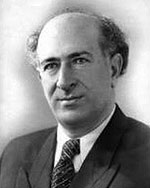Famous people of Shusha
The people of Shusha made it the pearl of the Caucasus, the cradle of our culture, the mugham-singing heart of Azerbaijan
Famous people of Shusha
Bulbul

Bulbul, (Murtuza Rza oglu Mammadov, 22 June 1897 – 26 September 1961) was a famous Azerbaijani and Soviet opera tenor, folk music performer, and one of the founders of vocal arts and national musical theatre in Azerbaijan.
Bulbul was born in 1897 in the village of Khanbaghi that situated next to the Shusha city. Since his childhood Bulnul was famous for his musical talent. That is why people nicknamed him Bulbul (“nightingale” in Azerbaijan language). Later on, he chose that name as his stage name when he became involved in professional music. While still a young khananda, he was invited to Baku in 1920 to perform the role of Karam in Asli and Karam opera of Uzeyir Hajibeyov. There he became acquainted with European-style opera and decided to excel in this genre. In 1921 he was admitted to Azerbaijan State Conservatoire (now known as the Baku Academy of Music) and studied music and vocal arts. Later on he continued his education in the La Scala Theatre in Milan, Italy.
In his songs, Bulbul was able to blend national manners of performance with traditions of Italian vocal school. He was also first to play the lead role of Koroghlu in Koroghlu opera of Uzeyir Hajibeyov in 1938. Throughout his life, Bulbul was the vocal performer and the co-author of a number of songs and romances.
Bulbul was also known for his music-related publications and teaching vocal arts. Between 1932 and 1961 Bulbul worked as a professional educator at the Azerbaijan State Conservatoire. He acquired a PhD degree in music in 1940. His monographs nowadays serve as an important source for those studying Azerbaijani music. Bulbul was the first musician to publish study guides and manuals used in teaching students how to play the tar, kamancha and balaban, traditional musical instruments of Azerbaijan.
Bulbul was awarded the highest order of the Soviet Union – the USSR State Prize, as well as the “Stella di Garibaldi” order in Italy. He died in 1961 in Baku and was buried at the Alley of Honor in Baku.
The Ministry of Culture of Azerbaijan purchased the bronze busts of Bulbul and several other famous Karabakh Azerbaijanis that had once been erected in Shusha, on the black market in Georgia. Following the Armenian occupation of Shusha in 1992, these monuments were machine-gunned, removed from their original place and intended to be sold as scrap metal. These monuments are preserved in the courtyard of the Azerbaijani Museum of Arts in Baku for several years. After the liberation of Shusha by the glorious Army of Azerbaijan at the result of the Second Karabakh war the bust of Bulbul together with the busts of Khurshudbanu Natavan and Uzeyir Hajibeyov was returned back to Shusha.
Besides his busts in Shusha in 2008 the Central Bank of Azerbaijan as a commemoration minted a 100-manat gold commemorative coin dedicated to Bulbul and in October 2012 the statue of Bulbul unveiled in Baku. The author of the monument is sculptor Akif Asgarov.

